Lori Raetzman, PhD, discusses mentoring and conducting science in challenging times.
When she’s not in her lab studying the effects of environmental chemicals on female reproductive aging, Lori T. Raetzman, PhD, is busy guiding the next generation of endocrine scientists, which makes her an ideal candidate to receive the Endocrine Society’s 2025 Sydney Ingber Award for Distinguished Service. She talks to us about her research, working with up-and-coming trainees, and how the world of endocrine science has suddenly changed.
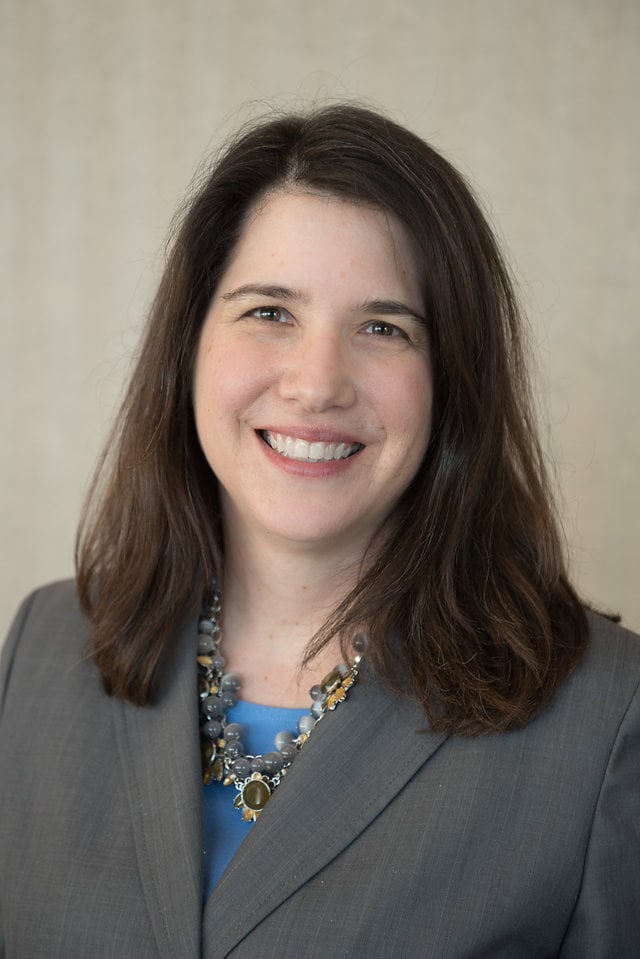
Lori T. Raetzman, PhD,has always been motivated to help the next generation of scientists figure out their career paths and the hidden rules of success in science. But being a mentor today has suddenly become incredibly difficult. Scientists across the country have already lost or are at risk of losing grants that fund their research due to cuts by the federal government. Raetzman, however, still lends a compassionate ear and words of encouragement to her students and young researchers who need guidance in these challenging times.
Raetzman is a professor of molecular and integrative physiology and associate director for the MCB PhD Programs at the University of Illinois Urbana-Champaign, School of Molecular and Cellular Biology. In January, her continued service to the endocrinology community earned her a place among the Endocrine Society’s 13 distinguished leaders in endocrinology, as the recipient of the 2025 Sydney Ingber Award for Distinguished Service.
She has served on numerous Endocrine Society committees over the past two decades, showcasing remarkable leadership skills as committee chair. Her initiatives, including incorporating social media for enhanced trainee engagement and organizing workshops on critical professional development topics, have amplified the Society’s reach and inclusivity. Raetzman has also been instrumental in fostering diversity and leadership through programs like FLARE, supporting underrepresented minorities in basic and clinical research.
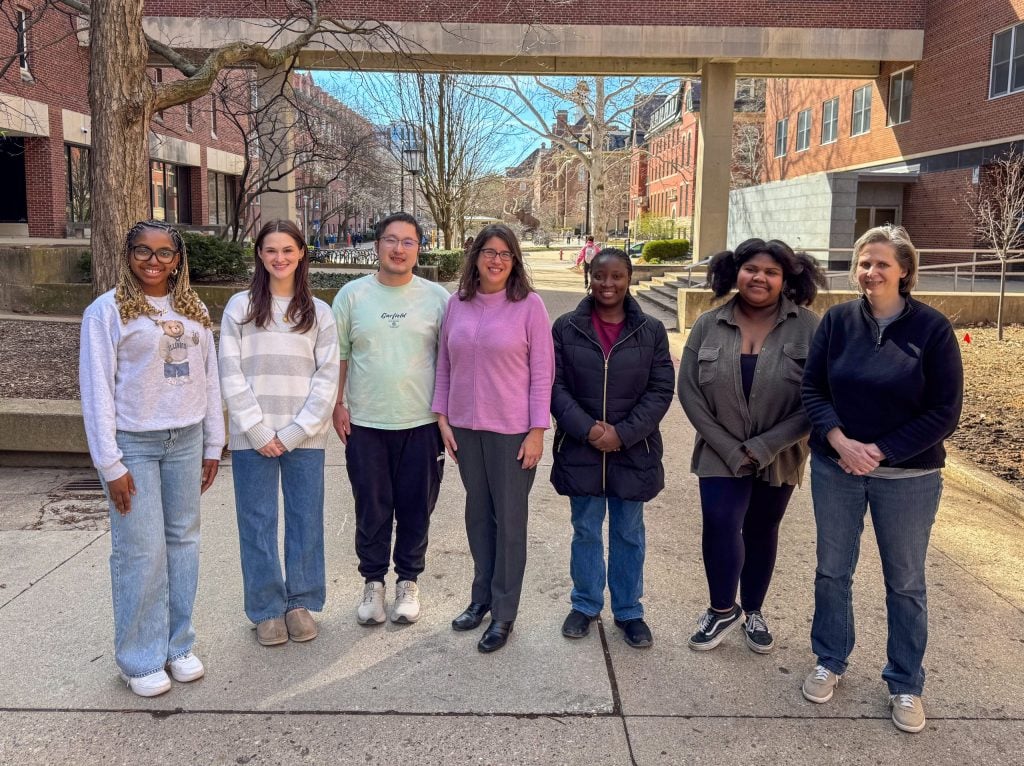
We spoke with Raetzman about her dedication to service and more about the current challenges of mentoring the next generation of scientists.
Endocrine News: What did hearing the news of the recognition for Distinguished Service mean to you?
Lori Raetzman: I was so honored. I love The Endocrine Society. It has been my scientific home since I started working with the pituitary gland during my postdoc with Dr. Sally Camper. I’ve participated in so many of the events as a trainee, and then, have just been so gratified to be able to continue to give back to the Society as my career has grown. Being honored from your home society for giving to them is just the biggest honor that I could imagine.
EN: An active member of the Society since joining in 2001, you’ve served on numerous committees. What’s your motivation to be such a big part of the Society and community?
Raetzman: One of the main things that motivates me is my strong belief that helping the next generation of scientists, helping them figure out their path, figure out the hidden rules that occur with science, is really crucial being able to have a workforce that can tackle the next generation of problems.
I have loved interacting with trainees and helping with programming for the annual meeting. That is really what’s motivated me. I grew up in a family that didn’t do science. I did not have science exposure at all growing up, or even much in college, other than getting into a summer research program at the Mayo Clinic. And that changed my life.
“Learn to communicate your science so that anyone can understand the importance of your work. Science drives healthcare innovations and contributes to a robust national economy. The Endocrine Society can help you be an advocate for yourself and the field.” — Lori T. Raetzman, PhD,professor, molecular and integrative physiology; associate director MCB PhD Programs, University of Illinois Urbana-Champaign, School of Molecular and Cellular Biology, Champaign, Ill.
So, I feel like that something that we all should be thinking about is giving those opportunities to trainees to change their lives. So, I really love the Society’s programming that helps to open people’s eyes about what a career in endocrinology can do for them and for the world around us.
I’m also extremely grateful to be able to champion basic research both within the Society and through advocacy. Our members do amazing work but also face challenges with research access and funding. I feel like I am making a small difference in addressing concerns by co-chairing the Research Affairs Core Committee.
EN: I know you are also a champion for supporting diversity in the endocrine field. With the present-day attacks on diversity, equity, and inclusion programs, is there a way to protect the mission of programs like FLARE?
Raetzman: I think we still have to keep doing the work. We need to have people from backgrounds that represent the breadth of society at the table seeing patients, doing research, and setting policies for the field. Because there won’t be federal grants to support a diverse workplace anymore, maybe some other institutional funding is going to have to be prioritized to help keep some of that mission alive, and I think that’s really the only way. We can’t assume that it’s going to happen without support from people, at many levels, across our institutions.
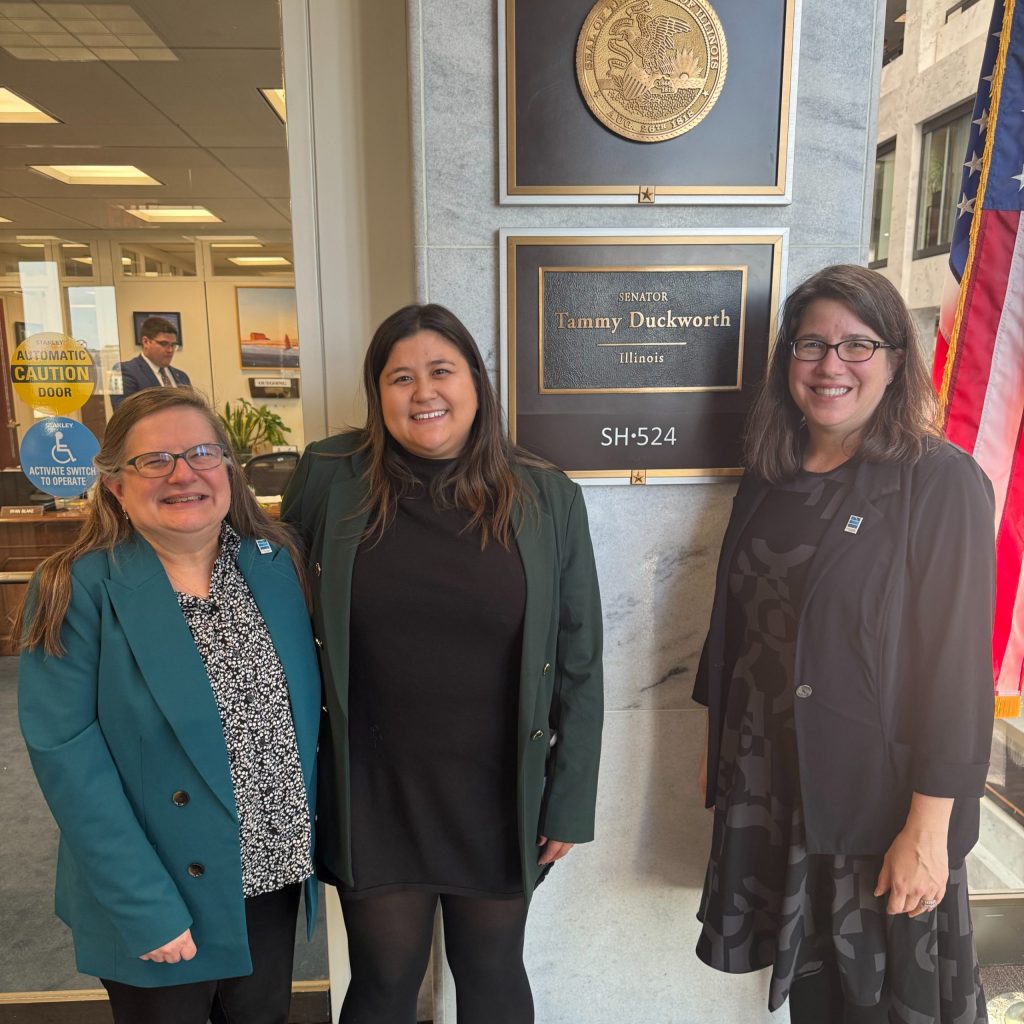
EN: Do you have a personal quote or words of wisdom that you share with the students you mentor? Especially now, what are you telling students who may be worried about their future?
Raetzman: Oh my gosh, yeah, I’ve had a lot in my office, recently. I think, right now, it seems like such an individual decision about how to proceed with one’s career. It’s hard for me to do a one-size-fits-all help. The international students are really stressed, not only about their career, but their future in this country. Some of them have moved families here, and this is the first time I feel that I don’t have a single, pop-out word of wisdom. I have to listen to their stories and hear why they’re concerned.
My normal words of wisdom are usually: make sure that you have a mentoring team. Don’t be afraid to reach out to multiple people because you have different identities that you might need help with. Maybe your idea of your career path is different than your research mentor. Maybe your research mentor doesn’t know how to help with a personal situation that is intersecting with work. Finding the right people to get advice from and having people be your champion is something you need at every career stage.
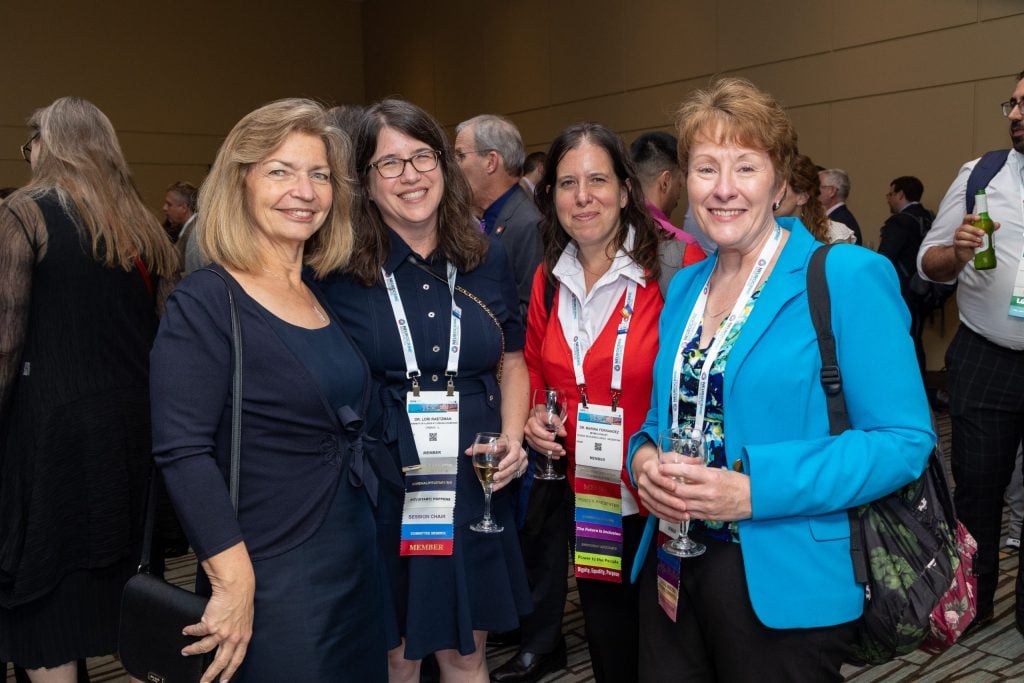
But right now, the stories are just heartbreaking. And so, I feel like I need to just sit and individually listen to what the person is experiencing and then try to not sugarcoat things. I think a lot of people are just burying their heads in the sand and assuming things are going to get better. But you can’t do that with students and their lives. You have to tell them that “this is a day-to-day thing, and this is what I’m seeing going on with the government. I’m not sure that the grant that we have for the summer research program that supports underrepresented students will around next year.”
We submitted a grant for a baccalaureate bridge program that will prepare students who have finished undergrad for grad school, and that’s for students from underrepresented populations. We know these programs are highly successful in supporting the next generation of scientists. It was devastating to watch the program announcement disappear as we were submitting the proposal.
EN: Along those same lines, you have a dual role. You have your own research. What do you see as your greatest challenge this year?
Raetzman: I’m the director of our PhD program, and I took this over about a year and a half ago, and a good chunk of my time is thinking about how we can support the students we currently have, as well as trying to take in as many new students as we can, to give them opportunities.
The conversations that have been going on around about how to recruit and retain students have been really difficult with the current NIH funding changes and restrictions. Every single situation is that “this would have been easy a year ago, but now there are no pots of money. No fairy godmother is going to come and wave her wand and take care of our students.” And so that’s been one of my biggest things to worry about.
“My lab is making some amazing discoveries in congenital hypopituitarism and environmental impacts on pituitary function. I try to stay focused on making sure the lab is motivated to push forward, especially in the face of uncertainty.” — Lori T. Raetzman, PhD,professor, molecular and integrative physiology; associate director MCB PhD Programs, University of Illinois Urbana-Champaign, School of Molecular and Cellular Biology, Champaign, Ill.
Another big challenge is with my research lab. The upheaval in federal funding for scientific research is so detrimental to being able to plan a multi-year research program. We have projects that look at the effect of environmental chemicals on female reproductive aging. You need consistent funding to get to the end of the aging part of these studies. The other thought is for my students. They are all at different places in their training. The ones who have started recently, I worry if my grants don’t get their next year of funding how they will be supported financially. My lab is making some amazing discoveries in congenital hypopituitarism and environmental impacts on pituitary function. I try to stay focused on making sure the lab is motivated to push forward, especially in the face of uncertainty.
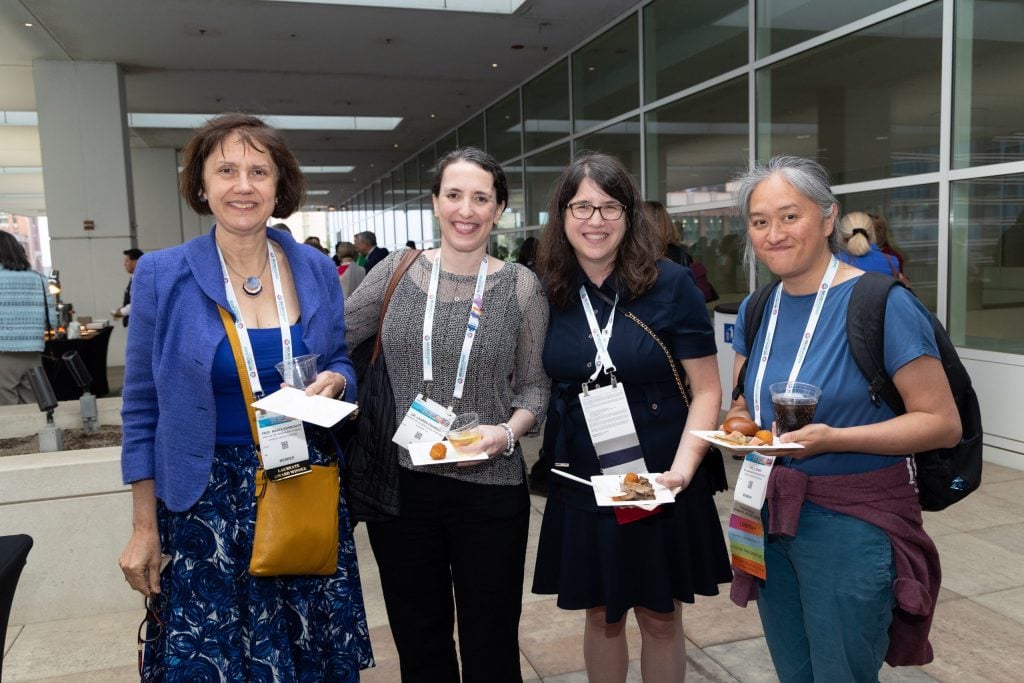
A bright spot is that I’m so grateful to the Endocrine Society for their advocacy efforts. Just this week, I was able to go for Hill Day in Washington, D.C. The Society, and especially Ellie Cliff, coordinated all the visits seamlessly. I was able to talk to the senators and representatives for my area. Although I’m in Illinois, and grateful to be in a state that supports science, it made me feel like I was doing something. They need to know the impact NSF and NIH funding has in their area. We also made sure that they had the right stories they needed to be able to tell about the value of endocrine research and the Special Diabetes Program if they’re speaking on the floor or talking with their colleagues. My last parting words are: Learn to communicate your science so that anyone can understand the importance of your work. Science drives healthcare innovations and contributes to a robust national economy. The Endocrine Society can help you be an advocate for yourself and the field.
-Shaw is a freelance writer based in Carmel, Ind. A regular contributor to Endocrine News, she writes the monthly Laboratory Notes column.

